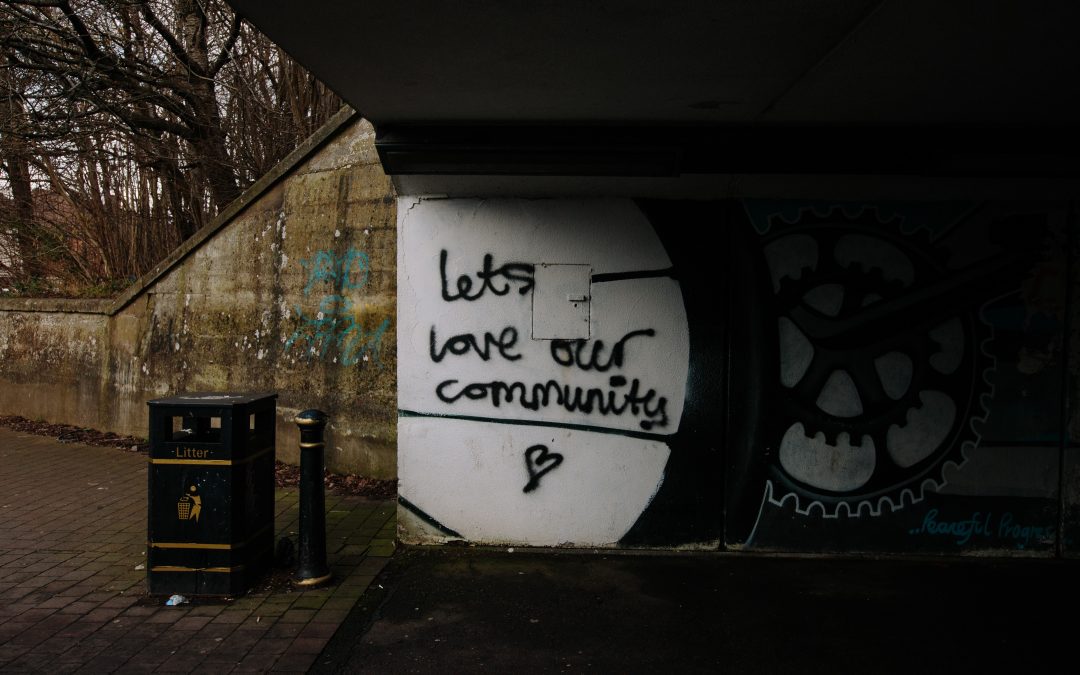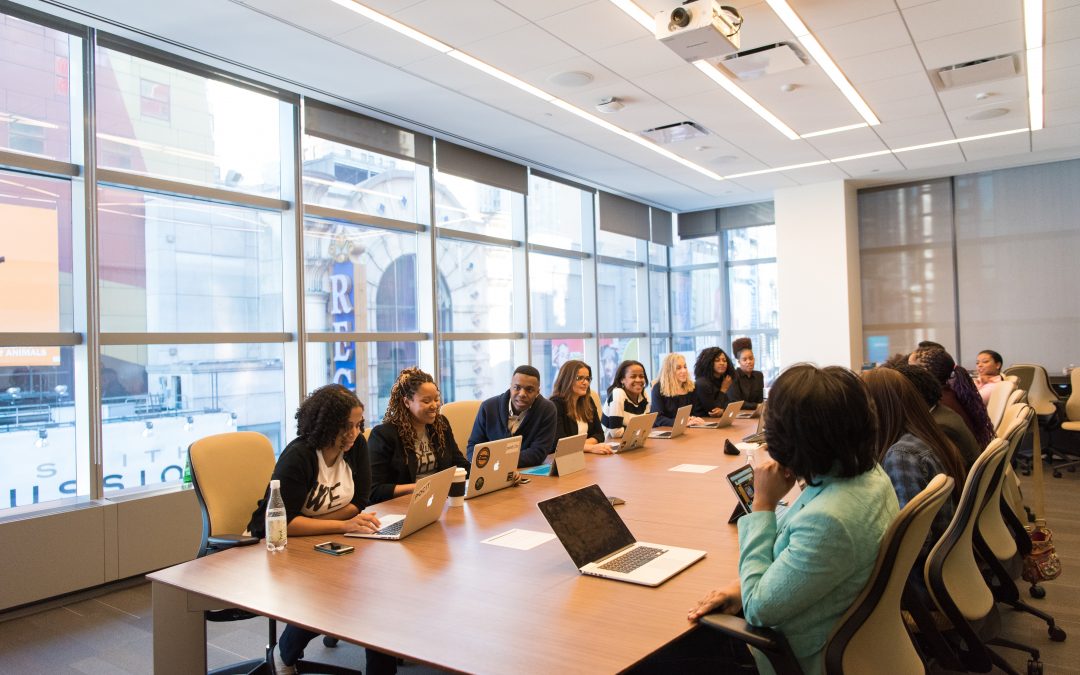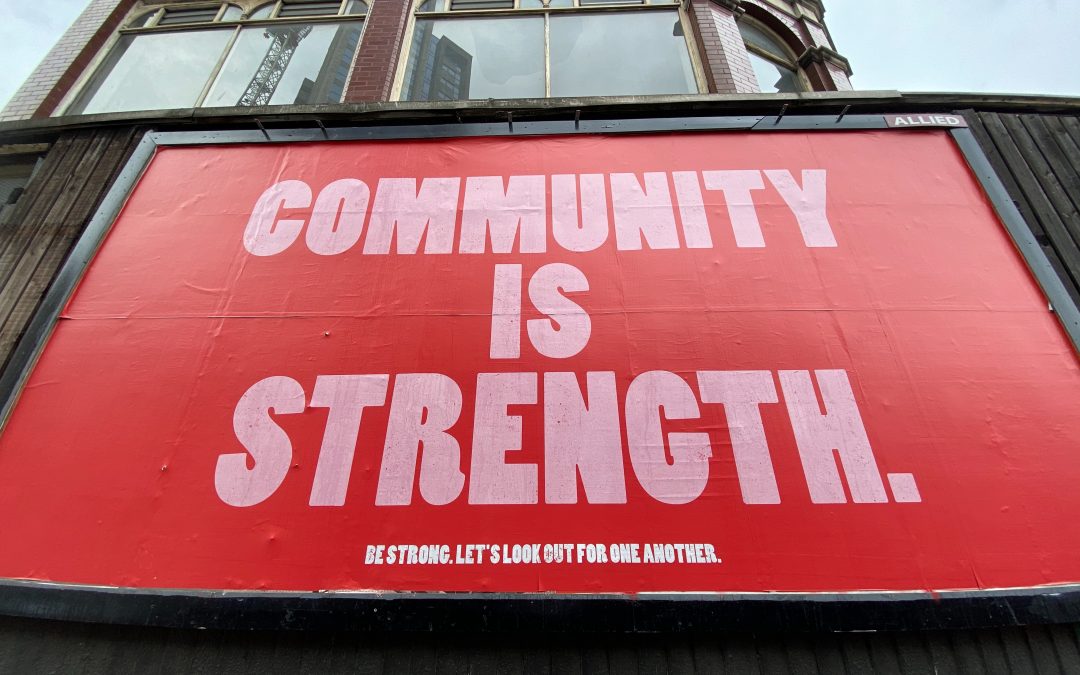
Hero’s never die
A while back, my band (Seraphidian) supported [Anthrax](https://www.anthrax.com/) at one of their UK tour dates. This was incredibly exciting for me. I was not only looking forward to strutting my stuff in front of 1200 people, but as a long time fan of the band, looking forward to meeting my guitar hero – Scott Ian. For years I had studied his playing, watched hours and hours of him headbanging live on video and listened to their CDs until my CD player virtually burst into flames. Well, not exactly flames, but you get my point.
Anyway, it turned out that Scott Ian was an arse. He may have been having a bad day at the office, but he did not seem interested in talking to anyone, and had an arrogant and intolerant persona. Having met plenty of other people who I respect in bands, I was rather disappointed that Scott Ian was like that. Years of respect were beginning to crumble.
Anyway, recently on the What The F**K Book Truck feature on LUGRadio, I chose [The Design Of Everyday Things](https://www.jnd.org/books.html#DOET) as my favourite book. Don Norman is something of a usability and design theory god, and I utterly adore this book and his inspiring teachings. So, I figured I should let him know that it was featured on the show:
> Hi Don,
> I am sure you are pink with delight that The Design Of Everyday Things has been picked as the book of choice on the current episode of LUGRadio (www.lugradio.org). LUGRadio is a fun, social and humorous take on Open Source, and a current segment is called The What The F**K Book Truck.
> I chose DOET in the current episode, and it seems our fanbase are also enjoying the book.
> So, when a large royalty check drops on the floor and you can retire to a diamond encrusted house by the sea, you know who made it happen.
> Seriously though, thanks for the great book – you have an inspiring mind.
> Jono Bacon
He sent me this reply:
> What the F*K! I guess it’s an honor.
> Thanks. Really, thanks.
> Don
You see, your hero’s really can come good sometimes. 🙂

Taste the rainbow
All go, as usual, and there is lots of fun stuff going, some of which I can’t let on about. Feel free to bribe me with crackers if you want, but I can’t let on.
When I was at [SCALE 4x](https://www.socallinuxexpo.org/) I did an interview with a journalist. She was in my talk and wanted to do an interview about my views on Open Source advocacy, moving people to the desktop and usability. We chewed the fat about a bunch of things and she [put it online](https://searchopensource.techtarget.com/originalContent/0,289142,sid39_gci1169030,00.html). And then…
…[today it was Slashdotted](https://linux.slashdot.org/linux/06/02/27/1930209.shtml). Its great to see that Slashdot are picking up these issues. The article seems reasonably balanced, although the line *”So, in essence, they’re saying they want desktops cluttered with unnecessary features”* is not entirely true – the problem I was referring to was that feature-for-feature comparisons are only important if you actually need all those features. If more people looked at what they actually *need* as well as what they predict they will need in the next few years, migration becomes (a) easier, (b) more viable and (c) cheaper.
## Bristol and StarOffice
Regular readers will have heard me blather on about Bristol moving to StarOffice. Well, recently I did an interview with Gavin Beckett; one of the team who worked and are still working on it. O’Reilly have put it on the O’Reilly Network as part of my F/OSS Advocate column. Go and read [Bristol Switches to StarOffice](https://www.linuxdevcenter.com/pub/a/linux/2006/02/23/bristol_migration.html) – it is a fascinating interview.
It was interesting to see [Sam Hiser’s take](https://fussnotes.typepad.com/plexnex/2006/02/opendocument_an.html) on the article. He, like many of you who mailed me, have identified with the similarities that Gavin faced when compared to the Massachusetts case:
> Gavin Beckett, Bristol’s IT strategist, has gone the Full Monty in making the business case for an open source-based office suite which offers as its center-piece the open standard OpenDocument file format.
> Please read Jono’s piece, it covers everything from how they made the business case, to cost modelling (what they included from Gartner’s migration cost model and what they threw out), their assumptions, user views and more. There is interesting information about how they addressed human factors — fear and the overriding perception people have that Microsoft is the only solution. Plus, there’s a section on how they are doing the migration…more similarities to The Commonwealth.
I really hope the article can bring some value and at least act as food for thought for other councils to make the same move.
## Jokosher
Jokosher is really coming on in leaps and bounds. Jason committed a new play head and working timer and I have added instrument configuration file support, a global configuration module and a new preference dialog. Mike is busy hacking with GStreamer to improve the sound support and Aq is also fiddling with Cairo to contribute to the purdy wave form view. In addition to this, Alasdair has taken control of the new Jokosher website [jokosher.org](https://www.jokosher.org/) and Greg has contributed a logo. All rocking stuff fellas.
## Speaking Events
Two more events added to the [Events Calendar](https://archivedblog.jonobacon.com/events/). First, on the 5th April I will be heading over to Nottingham to speak at [Nottingham Linux User Group](https://www.nottingham.lug.org.uk/) and deliver my *On the Front Line: Convincing People the Inconvincible* talk. I gave this talk at ManLUG a while back, and it seemed to go down well. As usual, I will update and add to the talk. Each time I repeat a talk, I like to add some additional content to it to keep it fresh.
The other talk is at the [OSS Watch Conference](https://www.oss-watch.ac.uk/events/2006-04-10-12/) down in Oxford the 10th April. I will be giving a new talk entitled *The Open Source Reality Check*. This talk is best explained by the abstract on the conference website:
> Developing an objective, vendor-neutral perspective on Open Source is a difficult task. Traditionally prepped by vendors, many organisations who are exploring Open Source find it near-impossible to identify an objective opinion that is driven by the technology and not by a specific product sold by a plastic-hair wielding salesman.
> In this entertaining talk filled with anecdotes, Jono Bacon, Open Source consultant and journalist at government-funded OpenAdvantage, will explore how Open Source has been promoted to organisations in the past and how both customers, vendors and onlookers can craft a realistic, accurate position on the current state of Open Source. This includes coverage of the Open Source business environment, support, Total Cost of Ownership (TCO), case studies and more.
> If you are interested in learning about Open Source without the spin, this presentation will open your eyes.
So, if you are anywhere near Nottingham or Oxford, do pop over and say hi. 🙂
—–

Jokosher
Well, [www.jokosher.org](https://www.jokosher.org) is now fully live and hacking is happening at a furious rate. Mike has now got playback working, and also mixed playback, which is essential for multi-track applications, Jason is hacking on waveform visualisation and also added the ability to import a file, I have hacked the Add Instrument dialog box to the icon view as shown in [the spec](https://archivedblog.jonobacon.com/viewcomments.php?id=621) and I am also working on the instrument representation in the application.
If you are interested in contributing to Jokosher, I have created a [Getting Involved](https://www.jokosher.org/wiki/GettingInvolved) page. We need loads of different types of contributors, not just coders, so everyone can get involved. We are also looking for someone to maintain a WordPress website and regularly update it with the latest happenings in the development process. This would involve regularly checking out the code, explaining new features and summarising discussion on the [mailing list](https://jasonfield.com/cgi-bin/mailman/listinfo/jonoedit).
We are using the awesome Trac project management system to work on Jokosher, and we are using tickets to manage who is working on what and which tasks are still open to be claimed by a volunteer. This makes it easy for people to contribute. Just head over to [this page](https://www.jokosher.org/report/9), pick one of the tasks and get involved. Simple!
If you are interested in trying out the code, head over to the [this page](https://www.jokosher.org/wiki/GettingJokosher) and use Subversion to grab the code.
Oh, and for you screenshot junkies:

Dogs can indeed look up
Thanks to everyone who came onto the [last blog entry](https://archivedblog.jonobacon.com/viewcomments.php?id=645) to talk about JonoEdit. One thing I have been wanting to change is the name. I didn’t call it JonoEdit and it was a name thrown around on the discussion forums while the idea was being discussed. Anyway, after some suggestions, *Jokosha* seems to be the popular choice, so I am pleased to announce that JonoEdit is now known as Jokosher. I have registered [jokosher.org/](https://www.jokosher.org/) and will be pointing it to the development server over at Jason’s site soon. Also, Jason set up a [JonoEdit mailing list](https://jasonfield.com/cgi-bin/mailman/listinfo/jonoedit) in which some initial discussion has been going on. I assume this list will be renamed soon to reflect the new project name.
In related news, Mike has been hacking away on Jokosher and has improved the initial recording functionality. Also, MacSlow has [talked about some of the waveform Cairo integration](https://forums.lugradio.org/viewtopic.php?t=1811&postdays=0&postorder=asc&start=0) on the forums and a few other people have expressed interest in contributing. All looks good.
## Xgl
Today [Paul](https://www.devel.co.uk/) and I were poking around trying to get Xgl and Compiz working. I initially tried to get it all working on a fresh Dapper Flight 4 install on a Thinkpad T42 complete with ATI Radeon card. Problems ensued when I could not even get the ATI driver working, despite following the usually accurate [Ubuntu forum instructions](https://ubuntuforums.org/showpost.php?p=423584). It seems however that there is a [bug in the latest ATI driver](https://www.ubuntuforums.org/showthread.php?t=76116&highlight=ati+driver+dapper).
Anyway, determined to make the damn thing work, I found [this thread](https://www.ubuntuforums.org/showthread.php?t=133772&highlight=xgl+breezy) and we both tried it on my main machine. We managed to get Xgl started, but everytime we tried to run Compiz, the screen corrupted. After some further digging Paul discovered that it is a bug in the ATI driver for the Mobility cards.
Let down by ATI on both sides. Nevermind.
## RaccoonShow Debian Package
Thanks to the great [David Watson](https://planetwatson.co.uk/blog), there is now a [RaccoonShow](https://archivedblog.jonobacon.com/projects/raccoonshow/) Debian package for Debian Unstable. Go and test it out and send any feedback over to David. 🙂
## Context vs. Content
Something which has been bubbling in my brain for a while has been the design perspective behind Content Management Systems (CMSs). I wrote this up into an O’Reilly blog entry called [Context vs. Content](https://www.oreillynet.com/pub/wlg/9236?wlg=yes). To quote the blurb:
> In recent years Content Management Systems (CMS) have become the new black and get virtually everyone excited. Despite such huge success, are many CMSs losing the focus on what their uses *really* want?
Read it [here](https://www.oreillynet.com/pub/wlg/9236?wlg=yes). Thoughts are welcome, as ever. 🙂
## Novell OpenAudio released
Friend and comrade [Reverend Ted](https://reverendted.blogspot.com/) has released Novell’s [first podcast show](https://www.novell.com/company/podcasts/openaudio.html). Go and check it out. It looks all set to have some great interviews and Ted is a fun host.

JonoEdit: It lives!
For some time now I have been questioned about why I use Windows (well, now Mac OS X) for recording, and I have always provided a bunch of reasons why I made this decision. To find out more, dig around the LUGRadio community and see the discussions.
Anyway, there was some discussion inside the LUGRadio community about what to do about this. While on IRC one day a chap suggested that the community could possibly club together to develop what he described as *JonoEdit* – an audio editor that meets my specification and solves many of the problems I had discussed. From all of this discussion it seemed a bunch of other people shared my views in terms of the ease of use of current Open Source multitrackers. As many of you will know, usability is one of my main interests, so ease of use was key to the success of moving to an Open Source platform for creating LUGRadio.
So, a while back I wrote up a [design spec](https://archivedblog.jonobacon.com/viewcomments.php?id=621) for my ideal audio editor. Jason also set up a [development site](https://jasonfield.com/trac/public/) in which the code can be hosted and notes can be made on the wiki. After this, I got busy with other things and didn’t think too much more about it. Well, to my surprise I checked the code out and was presented with this:
It seems that Elleo and Jason have been hacking hard on JonoEdit, and not only are chunks of the interface working but they just implemented the code to record.
I am bowled over by how cool this is. The LUGRadio community have proved to be cool in the past and this is just another shining example. What we need now are more developers to hook in and get involved. If you want a simple to use multi-tracker, know Python and PyGTK and are happy to learn GStreamer, get involved!
There is some discussion about setting up a mailing list at the moment, but at the moment feel free to use the [LUGRadio Forums](https://forums.lugradio.org/) to discuss JonoEdit development.

LUGRadio Live 2006
Wow, its all go at the moment. The [LUGRadio Live 2006](https://www.lugradio.org/live/2006/) wheels continue to grind, and a bunch of new names are confirmed:
* Steve Coast – OpenStreetmap
* Kat Goodwin, Jen Phillips and Phated – Women in Open Source
* Edward Hervey – PiTiVi
* Scott James Remnant – Ubuntu
* Barbie – Messagelabs and Perl
In addition to this we have drafted up the timetable and are confirming specific speaker slot times, being careful to ensure similar topics don’t clash. Everything is running smoothly and Aq also [posted some other planned ideas](https://forums.lugradio.org/viewtopic.php?t=1813) that we are seeking help for. Within a short while, mrben, pickle and neuro swooped in to help with some of these ideas.
LUGradio Live 2006 is going to be utterly incredible, I can guarantee it. There is so much going on I can’t blog about yet, but trust me, it will be well worth coming. 🙂
## Confirmed at OSS Watch
I am confirmed as a speaker for the [OSS Watch Conference](https://www.oss-watch.ac.uk/events/2006-04-10-12/) down in Oxford on the 10th April. My talk is entitled *The Open Source Reality Check* and here is the abstract:
> Developing an objective, vendor-neutral perspective on Open Source is a difficult task. Traditionally prepped by vendors, many organisations who are exploring Open Source find it near-impossible to identify an objective opinion that is driven by the technology and not by a specific product sold by a plastic-hair wielding salesman. In this entertaining talk filled with anecdotes, Jono Bacon, Open Source consultant and journalist at government-funded OpenAdvantage, will explore how Open Source has been promoted to organisations in the past and how both customers, vendors and onlookers can craft a realistic, accurate position on the current state of Open Source. This includes coverage of the Open Source business environment, support, Total Cost of Ownership (TCO), case studies and more. If you are interested in learning about Open Source without the spin, this presentation will open your eyes.
If anyone wants to hook up for a crafty pint when I am there, do let me know. 🙂
## Studio
The studio has been getting one heck of an update recently. New mixing desk, software, computer platform and other bits and pieces. Check out [Recreant View](https://www.recreantview.org/) for all the details.
—–

SCALE talk online
Well, first up, I have Raccoonshow’d my SCALE 4x talk and put it online in the [Events](https://archivedblog.jonobacon.com/events/) section. Go grab [Building the Next Generation Linux Desktop](https://archivedblog.jonobacon.com/events/jonobacon-buildingthenextgenerationlinuxdesktop.swf) now! Its quite a large file, so its recommended that you right-click the link and save it to your disk and then view it in your web browser. I have also re-RaccoonShow’d (what a great word, huh?) my [On the Front Line: Convincing People the Inconvincible](https://archivedblog.jonobacon.com/events/jonobacon-onthefrontline.swf) presentation – it may just work now! As ever, if anyone notices any bugs, do let me know.
## A picture says a thousand words
It certainly does, and I noticed that official LUGRadio stalker Yonkeltron created this stonker:

Thanks pal. 😛

Back home
Well, back home and its nice to be back in my own bed, complete with Sooz and two sleepy dogs. Now its just a case of getting shot of this jet lag. As has been observed before, it seems that jet lag is much worse on the way home. Its just a case of gritting your teeth and getting back into your normal hours.
While I was away there was some continued work by Brandon and Matthias to get RaccoonShow into a a decent Mac OS X package. Brandon has been working hard to make this a reality, and he has also sent me a patch as well as a small wxWindows GUI for it. My original plan has always been to make a simple GUI interface in which you could set the times for RaccoonShow by adding markers to a timeline. Although not as comprehensive as this, Brandon’s GUI is a great first start and I plan on testing it this week. I also made a few small adjustments to the main RaccoonShow code, tidied up the command line output and removed some unused code. I did this while waiting to go to the airport and the changes are now in SVN.
Little too tired to blog too much right now, so I will post some more tomorrow. 🙂

SCALE Rocks
Well, SCALE was awesome. I had a great time and met many, many fantastic people. A huge number of people made my stay in LA a great one, and I want to thank everyone deeply. This includes Jeff, Ilan, Shyam, Phil, Jordan, another Jeff, the first Jeff’s mate and many more. Thanks so much.
## Day One
On the first day I met Ted for breakfast and then we headed off to get our things ready for our talks. We then went to see Aaron Seigo’s talk about KDE4. Aaron gave a good talk, and I was pleased to see he indulged in a dare I gave him. The previous night, whilst imbibing a few Coronas, I said I would buy him a beer if he did a dance at the start of his talk. He did and I bought him a beer. Nice one Aaron.
After his talk it was Ted’s go, and he gave a fascinating talk with some awesome demos of NLD10. You know, NLD10 is *really* impressive. It is not only cool because of the Xgl eye candy, but it is really well integrated and well developed. There are a number of very cool features they have littered through it that are well worth checking out. I am looking forward to giving it a try. Although Ted’s talk was great, he failed to inform me at breakfast of his devious plan to get a picture of [Bacon and Eggs](https://reverendted.blogspot.com/2006/02/bacon-and-eggs.html). He then used said picture while demoing F-Spot. The bastard. 😛
After Ted’s talk it was my go. The talk seemed to go pretty well. I was a little unsure of the kind of audience I was going to get at SCALE, and my talk involved some gags and humorous slides, so I was hoping the audience would be receptive. Luckily they were. The response of the crowd was awesome and they all seemed to have a good time in the talk. Talk fans will be pleased to know that I taped it and I will be putting it online when I have a few moments. I was also pleased to hear that (a) DVD Jon was at SCALE, and (b) he thought my talk was the best of the day. Wow. Thanks to everyone (including DVD Jon) who made it along and made it such a fun ride. 🙂
Later in the day there was a special Weakest Geek competition. This was a spin-off of The Weakest Link TV quiz show, and it featured Aaron Seigo, Hans Reiser, John Terpstra, myself and some other folks on the team. Amazingly, Hans Reiser was voted off early and shortly after so was John, so it was down to Aaron and I. In a series of obviously rigged questions (Seigo must have paid them off in Moose horns or something), he beat me 7 to 6. He got C++ questions and I had to say what the F in FVWM was and what VAX was an acronym for. The game was great fun, and an excellent idea on the part of the organisers.
After the game it was off to a fancy restaurant with Aaron, Hans, John and others and then up to the bar for some beers. A great day all in all.
## Day Two
Woke up late after my alarm failed to awaken me. Strolled downstairs and went and had a chat with a bunch of LUGs from the area. LA has something like six LUGs, which sounds like a lot, but LA is actually huge. I met a bunch of people from the LUGs throughout the weekend and they are awesome. Its great to see such a solid community of people over in LA.
I then spent some time chatting to [Adam Leventhal](https://blogs.sun.com/roller/page/ahl) and he gave a mighty impressive demo of [dtrace](https://www.sun.com/bigadmin/content/dtrace/). I had never really seen dtrace before, but it is incredible. Adam is a really nice guy, straight and easy to get on with, and very technically capable. Next I did an interview with a journalist, and then spent some more time hanging around the expo and getting to know a bunch of other people. We then headed upstairs to grab some food and have a few beers. And then, about half an hour ago, I rolled into my hotel room, tired but satisfied, having had a great weekend.
SCALE 4x was a well organised, well executed event, with a great range of speakers and attended by a great bunch of people. The thing that I really took away from the event was just how community orientated is was. Not only did they put on a great show, and included a great range of exhibitors, but they managed to capture the essence of the Open Source community. In addition to this, I was really quite taken aback by just how friendly the locals were. I met some incredibly nice people, who unfortunately I don’t have their times to hand. They were so friendly and a new pal called Jeff invited to show me the tourist trap, and his friend invited to show me a great Mexican restaurant locally. I was also given a DVD by a chap called Jordan (check out more [here](https://wegotpowerfilms.com/)). In addition to this, people offered to show me other sights in LA and shared with me the local culture, recommended beers (to get me off Corona), and other such things. People in LA, and more specifically, Linux people in LA, are awesome.
So, I head back tomorrow. I am meeting up with Aaron Seigo for breakfast at 10am and then we are going to jump on the shuttle bus to the airport. Our flights leave around the same time, so it all works out pretty well. After that its a long flight, a day getting rid of jet-lag, and then back to work.

Pre-SCALE and post-KDE musings
Today was a fun day. After forcing my writhing jet lagged body to stay awake by plying it with beer last night, I woke up at around 10.30am. Fixed a few things on a chapter, had a shower and then headed to the OpenDocument workshop downstairs. I saw a fascinating talk by Peter Quinn in which he candidly explained the many political and technical details that surrounded the Massachusetts migration. Quinn struck me as a man of great worth and character – he really did sacrifice his own personal circumstances for the good of his state and the further adoption of OpenDocument.
I was again impressed with the way an authority considered the move to ODF, and these impressions mirrored the way Bristol moved over to StarOffice. In both examples, these organisations endeavoured to provide a solid, balanced perspective on the migration and endeavoured to prevent what Quinn describes as ABM – Anything But Microsoft. Its heartening to know we have people such as this on our side, and we need more of them.
After Quinn’s talk was a talk by Doug Heintzman from IBM in which he discussed some of the cool things you can do with ODF. One of the most striking examples was collaboration. Recently I have been playing with the eminently cool [Gobby](https://gobby.0x539.de/) for source code collaboration, and Heintzman demonstrated how in IBM’s research software he could edit a document in a word processor and the changes be shown in a special Firefox plug-in that displays ODF documents. Likewise, when the plug-in was edited, the changes were reflected in the word processor. Impressive stuff. A good even and kudos to the [OpenDocument Fellowship](https://opendocumentfellowship.org/Main/HomePage) for organising the event.
The right honourable [Reverend Ted Haeger](https://www.blogger.com/profile/5161713) arrived earlier. Ted works in Marketing at Novell, and we headed out to grab a burger and then have a few beers. Its great to finally meet him, and we had a good laugh. Ted is someone with a really keen understanding about Open Source, and is exactly the kind of person I like to see advocating it. He has a lot of perspective, which is essential for this kind of work, and a great sense of humour. Novell are a lucky bunch to have him there.
A little later in the evening I hung out with [Aaron Seigo](https://aseigo.blogspot.com/). We have been threatening each other with beer for years, and finally managed to hook up and have a few. We chewed the fat about past, present and future KDE and I think he is doing a cracking job there. You know, being a former KDE guy, it brought back a number of fun memories when I was involved with KDE. As Aaron spoke he mentioned people who I used to work with on KDE, and it made me a think a little about the time when I left the project.
Its emotionally quite a difficult task to leave a project. Back then, I had so much hope and expectations for the KDE project. When I first got involved, I was so incredibly excited with the potential for the project, and I was convinced we could make real, pragmatic change with our exciting desktop. With being so new to Open Source at the time, KDE was really the yardstick at which I measured Open Source and its development process. As time rumbled on and I became increasingly frustrated with the insane over-configurability of KDE, I started the [KDE Usability Study](https://usability.kde.org/) and started lobbying for change in this area. As those of you familiar of my history with KDE will be aware, these efforts largely fell on deaf ears.
After some discussion with Aaron tonight I realised that I was basically four years too early. The kind of usability issues that I was discussing back then are now being validly listened to and change is being executed. I suspect the reason why it didn’t happen back then was partially due to the culture of KDE at the time and partially due to the sheer reliance of you-must-be-a-coder-for-any-change-to-happen. Luckily this is different now, and I am really genuinely pleased for the KDE project.
One point I really must stress is that I am not a hardcore member of either KDE or GNOME. For some reason a lot of people think of me today as either a KDE or GNOME developer, and I am firmly in the middle-ground. As far as I am concerned, I am interested in helping to create and advocate the highest quality desktop possible, and I think the quality tends to shift between KDE and GNOME in a cyclic fashion. You know, in the early days, KDE encompassed the real quality and potential and GNOME didn’t. As KDE became bloated and went a little crazy, the GNOME project took in a saner and more effective position. The risk GNOME now faces is becoming something of the ‘sensible jumper club’ in which nothing all that new gets innovated, and when it does it happens at Novell and the GNOME community claim it is a big conspiracy. GNOME has the ability to perform astonishing innovation, but there is nervousness of it happening. So, the ball is GNOME’s court at the moment, but they may risk losing it to KDE if their don’t play their team effectively.
So, all in all an interesting day. Tomorrow SCALE 4x kicks off proper, and I will be performing my talk. I will be recording the talk and should be putting it online with the aid of the mighty [RaccoonShow](https://archivedblog.jonobacon.com/projects/raccoonshow/) soon. Incidentally, thanks to Brandon Stafford the RaccoonShow patch. 🙂
